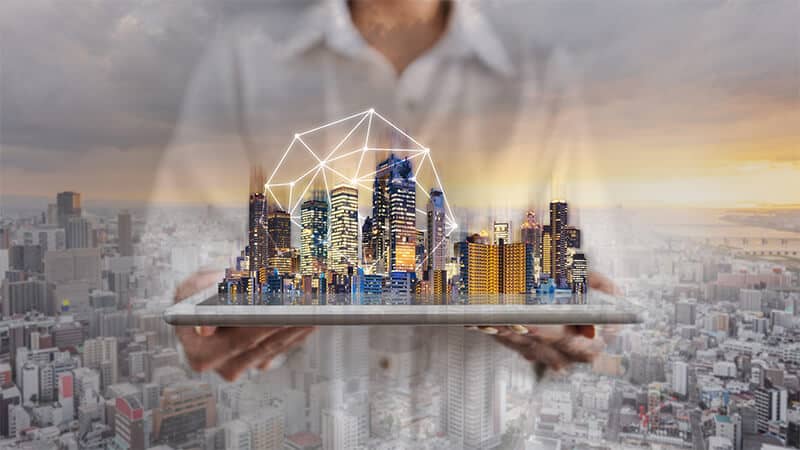The real estate sector is at the forefront of digital innovation, revolutionizing property marketing and transactions through advanced technologies and online platforms. Virtual reality (VR) tours, interactive 3D models, and Augmented Reality (AR) applications are redefining the property viewing experience, enabling prospective buyers and tenants to explore properties remotely and make informed decisions. Moreover, digital platforms and blockchain technology are enhancing transparency, security, and efficiency in property transactions, streamlining processes, and reducing administrative burdens.
Embracing Sustainability and Eco-Friendly Practices: Sustainability is taking center stage in the real estate industry, with a growing commitment to implementing eco-friendly and energy-efficient building practices. Green building certifications, such as LEED and BREEAM, are becoming benchmarks for excellence in sustainable design, construction, and operation. Developers are increasingly incorporating renewable energy systems, optimizing resource utilization, and integrating green technologies to minimize environmental impact, enhance building performance, and meet the rising demand from environmentally conscious stakeholders.

Image source: Google
Adapting to Changing Work and Lifestyle Preferences: The COVID-19 pandemic has accelerated shifts in work and lifestyle preferences, influencing the demand for residential and commercial properties that cater to evolving needs and preferences. The rise of remote work has fueled demand for homes with dedicated office spaces, flexible layouts, and enhanced connectivity infrastructure. Additionally, co-working spaces shared amenities, and community-centric designs are gaining traction, reflecting a growing emphasis on flexibility, collaboration, and community engagement in modern living and working environments.
Revitalizing Urban Spaces through Regeneration and Mixed-Use: Developments Urban regeneration and mixed-use developments are transforming urban landscapes, revitalizing communities, and stimulating economic growth. Redevelopment initiatives, adaptive reuse of existing structures, and integrated urban planning approaches are breathing new life into underutilized areas, creating vibrant, sustainable, and inclusive urban environments. By combining residential, commercial, retail, and recreational elements, mixed-use developments are fostering dynamic urban ecosystems that promote connectivity, diversity, and a high quality of life for residents and visitors.
Conclusion: The real estate industry is navigating a dynamic and evolving landscape, characterized by digital transformation, sustainability imperatives, changing market dynamics, and urban regeneration trends. Embracing innovation, fostering sustainability, and creating flexible, inclusive, and vibrant urban environments are crucial for industry stakeholders to adapt, thrive, and capitalize on opportunities in this rapidly changing sector.

